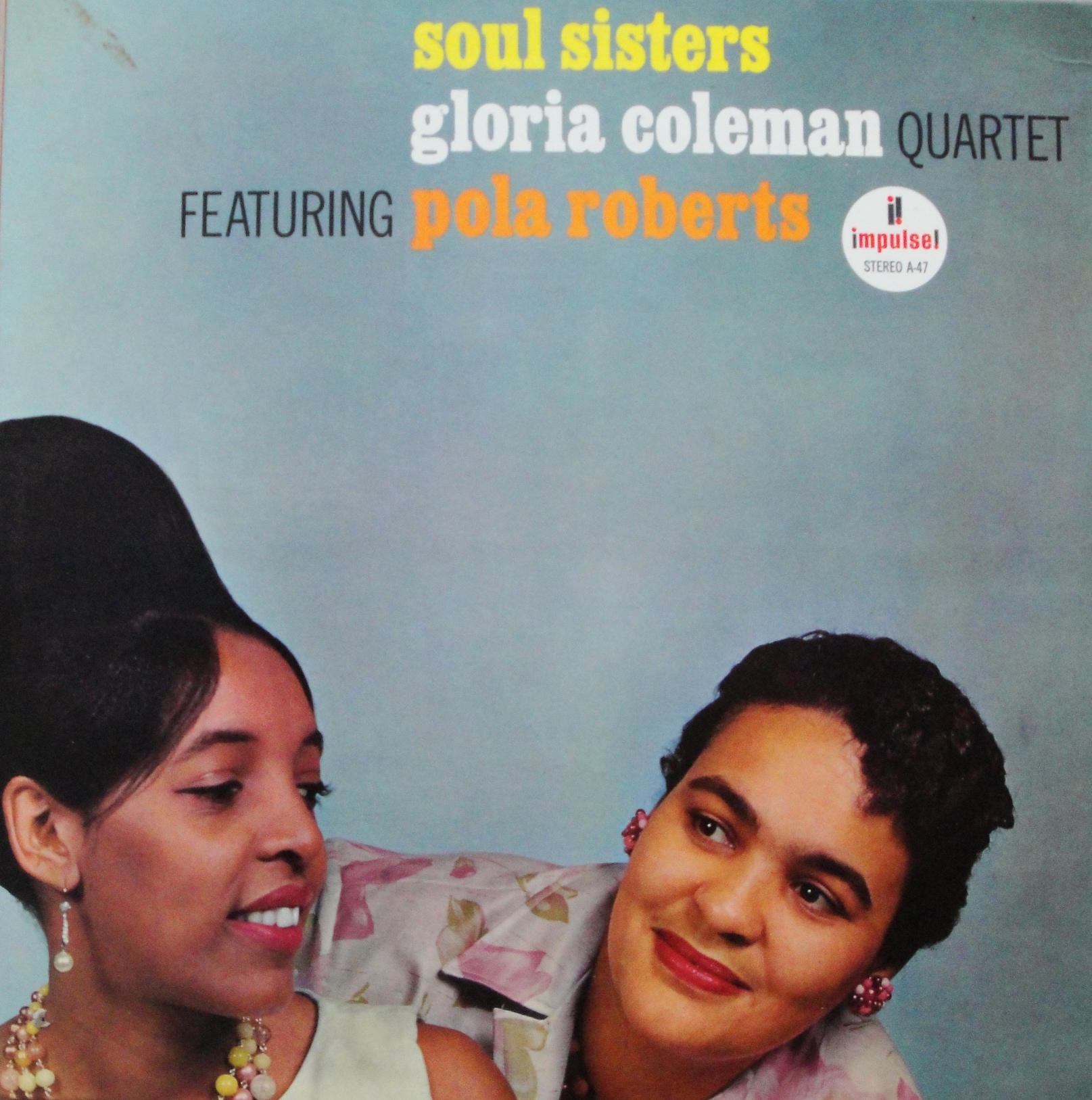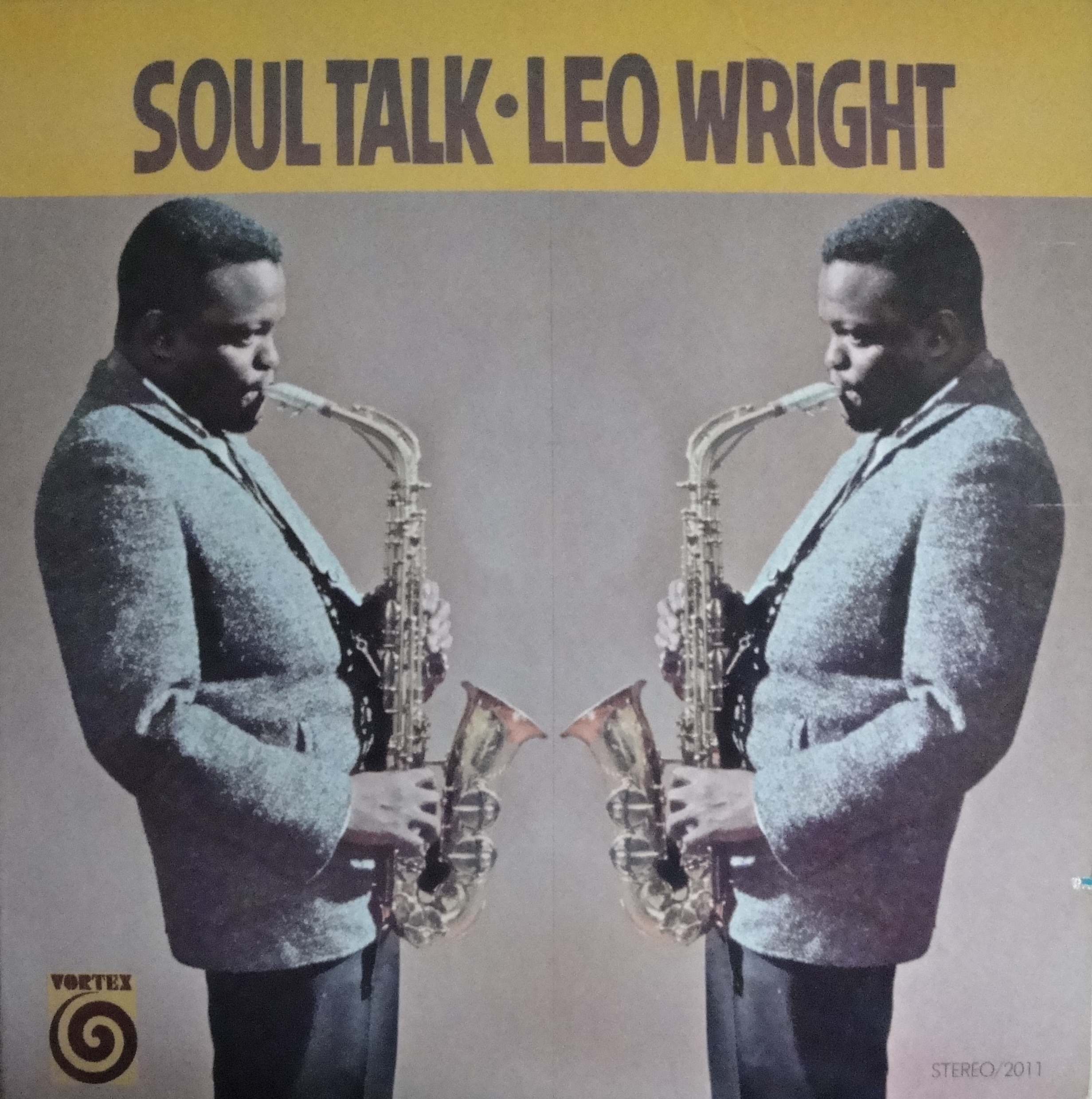Organist Gloria Coleman’s album Soul Sisters is charmingly soft-hued; a conservative yet catchy blues set that’s mellow in a funky way. In 1963 Coleman and drummer Pola Roberts regularly gigged with Grant Green on the East Coast, Leo Wright sometimes subbed for Green. Thus, these jazz ladies were well acquainted with their male counterparts. (Furthermore, Coleman is featured on Leo Wright’s Soul Talk)
Personnel
Gloria Coleman (organ), Leo Wright (alto saxophone), Grant Green (guitar), Pola Roberts (drums)
Recorded
on May 21, 1963
Released
as Impulse A-67
Track listing
Side A:
Que Baby
Sadie Green
Hey Sonny Red
Side B:
Melba Minor
Funky Bob
My Lady’s Waltz
Coherence isn’t Soul Sisters‘ only strong point. Green and Wright share the natural proclivity of cookin’ from the word ‘go’; Green’s urgent runs blend well with Coleman’s stripped-down organ sound and a no-nonsense enthousiasm; an ethos of not-laying-it-on-too-thick that climaxes in the charged My Ladies’ Waltz, wherein the excitement is not created by playing louder but playing ever so tight.
Gloria Coleman, then wife of saxophonist George Coleman, started out as bass player and pianist before turning to the organ and picking up some advice from the inventor of modern organ jazz, Jimmy Smith. From her supportive comping on among others Melba’s Minor, a composition that borrows part of Django’s theme, it is evident she took Smith’s lessons to heart.
Gloria Coleman’s discography reads like the manual of a toothpick: it’s very concise. She nevertheless performed regularly and her tunes were in demand. Miss Coleman died in 2010. As you’ll surely agree, the passing of a ‘soul sister’.



